
Poppies are worn as a show of support for the Armed Forces community. The poppy is a well-known and well-established symbol, one that carries a wealth of history and meaning with it. Wearing a poppy is still a very personal choice, reflecting individual experiences and personal memories. It is never compulsory but is greatly appreciated by those who it is intended to support.
Excerpt from www.britishlegion.org.uk
Click here to find out more.
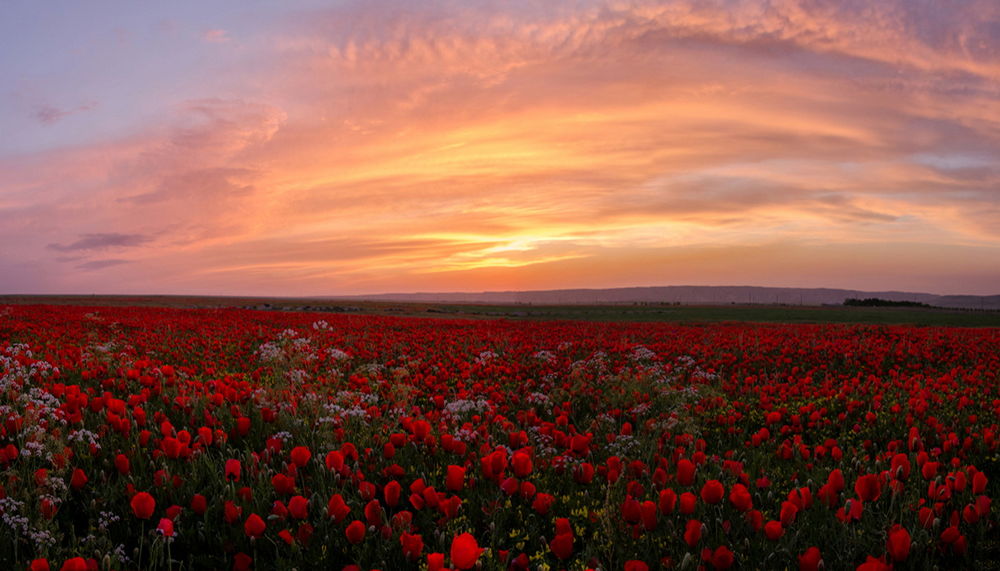
The history of the poppy as a symbol of remembrance is not as clear cut as has been previously assumed. The first use of the poppy as a metaphor can be traced back to the Napoleonic wars of the early nineteenth century, rather than the First World War. Although it is commonly assumed that the origin of the poppy as a symbol is derived from the devastation of the First World War, there are several anonymous documents written during the Napoleonic wars which noted that following battle, poppies became abundant on battlefields where soldiers had fallen. These same sources drew the first documented comparison between the blood-red colour of the poppies and the blood spilt during conflict. Scarlet corn poppy growth is aided by massive disruption in soil and thus the devastation of the natural environment caused by the Napoleonic wars saw fields littered with corpses alongside bright red poppies. In English folk tradition, the poppy has long symbolised sleep and death. Similarly in Holland a common folk belief persists that children should avoid picking poppies as it is believed it will give them cancer. Thus the symbolism of the poppy as a physical commemoration of war dead actually predates the First World War. However it was not until after the First World War when the poppy began to gain the ascendancy as an international symbol of remembrance and charity.
Excerpt from thehistorypres.co.uk
Click here to find out more
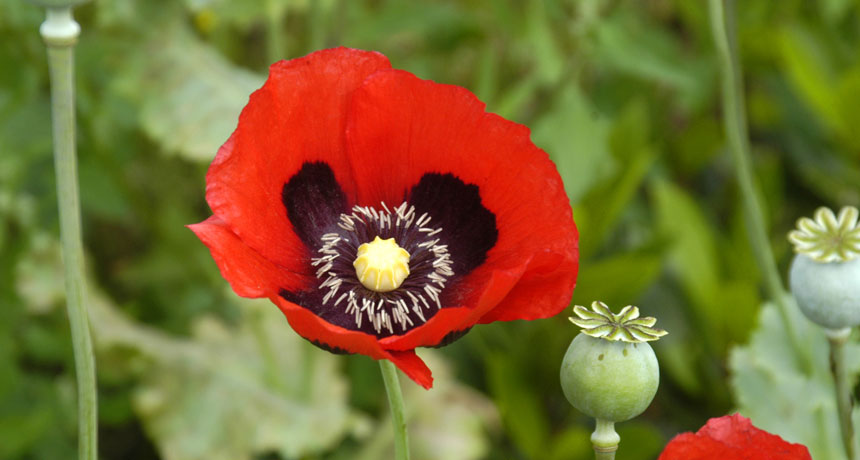
The areas of Northern France known as Flanders and Picardy saw some of the most concentrated and bloodiest fighting in the First World War There was complete devastation. Buildings, roads, trees and natural life simply disappeared. Where there once were homes and farms, was now a sea of mud, a grave for the dead where men still lived and fought.
The poppy flowers were the only living things that survived. They appeared in vast numbers bringing a delicate beauty to areas which had seen such terrible scenes. It brought LIFE, HOPE, COLOUR and REASSURANCE to those still fighting.
Miss Moina Michael, an American War Secretary with the YMCA, bought red Poppies with money that had been given to her by work colleagues. While wearing one of the Poppies she had bought, she sold the remainder to her friends to raise a small amount of money for servicemen in need. She wrote:
“And now the Torch and Poppy red, wear in honour of our dead”
The first actual (POPPY DAY) was held in Britain on November 11th 1921 and it was a National success. On the eleventh hour of the eleventh day of the eleventh month in 1918, the First World War ended.
World War I (1914 – 1918) World War II (1939 – 1945).
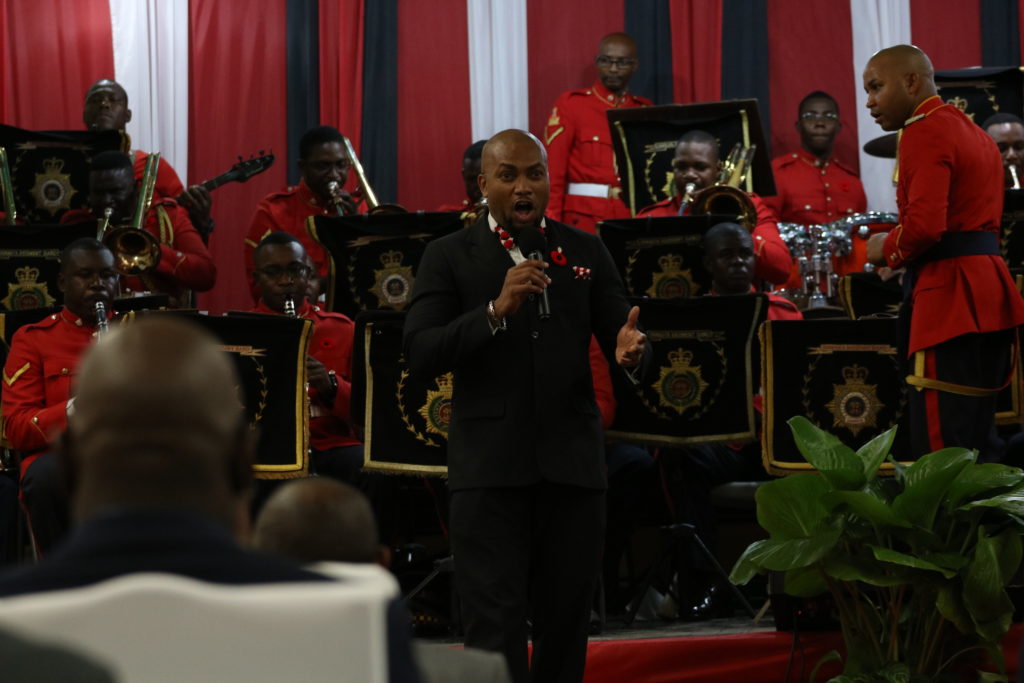
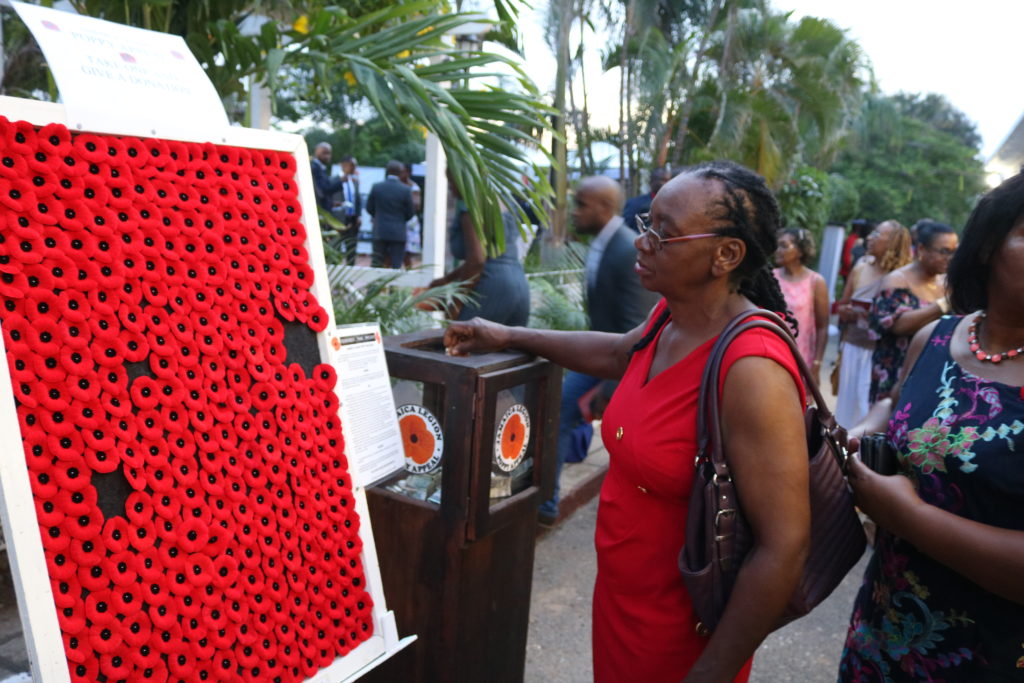
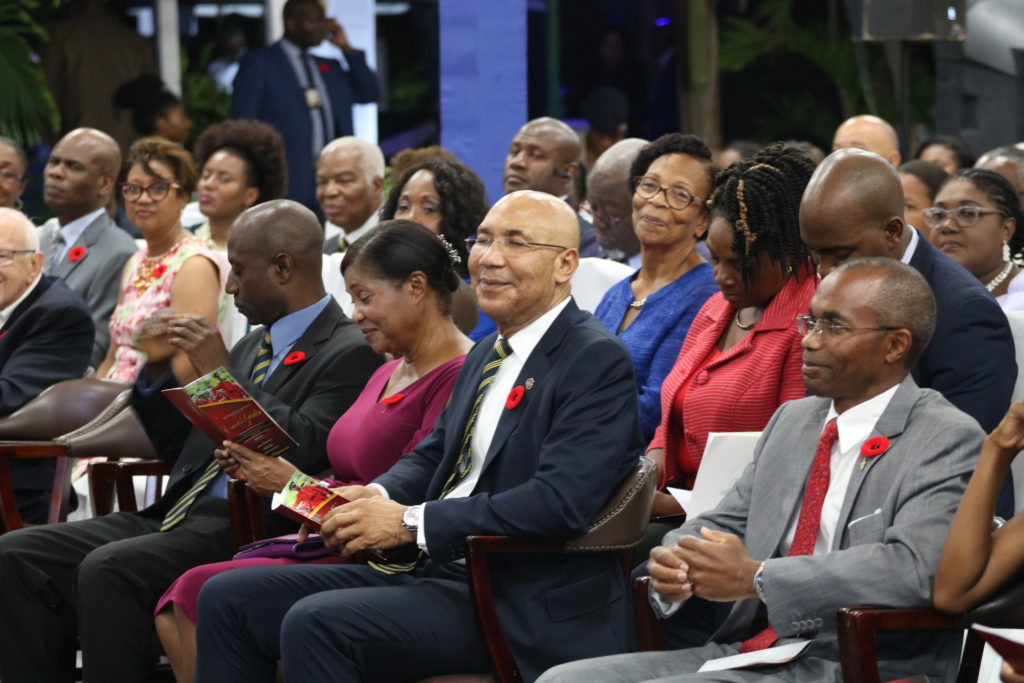

The launch of 2019 Poppy Appeal was held at Curphey Place, Swallowfield, Kingston, under the Patronage of His Excellency, The Most Honourable Sir Patrick Allen, Governor-General of Jamaica. This launch, which was held on October 6, is held annually to symbolize the start of the period where poppies are worn. It also symbolizes the start of a fund raising period, where moneys are raised to aid in taking care of War Veterans and Ex-Service Members. This period ends on November 11, Remembrance Day, after which the poppy will no longer be worn. November 11, marks the day World War I ended.
By Lieutenant Colonel John McCrae
In Flanders fields the poppies blow
Between the crosses, row on row,
That mark our place; and in the sky
The larks, still bravely singing, fly
Scarce heard amid the guns below.
We are the Dead. Short days ago
We lived, felt dawn, saw sunset glow,
Loved and were loved, and now we lie,
In Flanders fields.
Take up our quarrel with the foe:
To you from failing hands we throw
The torch; be yours to hold it high.
If ye break faith with us who die
We shall not sleep, though poppies grow
In Flanders fields.
Except from https://www.poetryfoundation.org
Click here to find out more